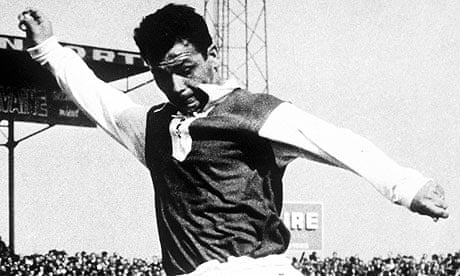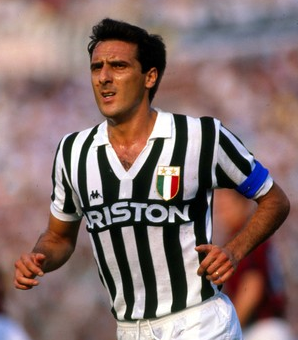Cutch
Full Member
(BOZSIK CONTINUED)
In Bozsik’s absence the Hungarians prevailed and Cucu was able to return for the semi-final against defending champions, Uruguay. Arguably the finest game in the history of the sport saw two supreme attacking sides take it in turns to threaten the opposing goal. Hungary seemed certain winners at 2-0, but Uruguay fought back to force extra-time. Kocsis restored the Hungarian advantage before applying the killer blow with a header from Bozsik’s cross. The final against West Germany saw Puskas return from injury, but Hungary again allowed a two goal lead to slip away. This time it would be West Germany who would prevail.
The defeat was a tremendous anticlimax for a team that seemed sure to win. Hungary had not lost a match for four years since their defeat to Austria in Vienna, recording 27 victories and four draws in the intervening years. To lose the match that mattered most was a crushing disappointment. Yet almost immediately the team started winning again. It was not until 1956 that they would lose another game.
That was the year of the Hungarian revolution which prompted the break up of the “Golden Team”. When the uprising took place Honved were abroad as they prepared to take on Athletic Bilbao in the European Cup. The team had been scheduled to depart on a tour of South America, and although the tour went ahead it did so without the permission of the Hungarian authorities. When it finished the players were faced with a difficult decision: should they return to Hungary or remain in exile?
Bozsik’s position was among the most difficult. He was not only a member of the Communist party, he was also a deputy in the Hungarian parliament. Furthermore, his father had recently died and he did not feel he could abandon his mother and four brothers in Budapest. The chance to coach at Atletico Madrid (an offer obtained for him by Emil Osterreicher) was tempting, but he could not fail to return home.
As he did so both Honved and the Hungarian national team fell apart. Czibor, Kocsis and Puskas, all decided to stay in the West and in their absence the club was no longer competitive. Despite that, Bozsik remained. A disappointing World Cup in 1958 did not deter him from captaining the Hungarian national team and in 1961 he became only the third man in history (after Billy Wright and Thorbjorn Svenssen) to reach 100 caps.
Given his lack of goalscoring prowess and the limited availability of footage it is perhaps inevitable that the name of Bozsik has largely been forgotten. Yet there are few historical players who would have been more valued in the modern game. For Bozsik possessed the gift that is the most valued in contemporary football and the hardest to find, that of time. He had the ability and composure to wait for the right option and to execute what few others could even see. In an era where such qualities are at a premium, Bozsik would have been peerless.
The defeat was a tremendous anticlimax for a team that seemed sure to win. Hungary had not lost a match for four years since their defeat to Austria in Vienna, recording 27 victories and four draws in the intervening years. To lose the match that mattered most was a crushing disappointment. Yet almost immediately the team started winning again. It was not until 1956 that they would lose another game.
That was the year of the Hungarian revolution which prompted the break up of the “Golden Team”. When the uprising took place Honved were abroad as they prepared to take on Athletic Bilbao in the European Cup. The team had been scheduled to depart on a tour of South America, and although the tour went ahead it did so without the permission of the Hungarian authorities. When it finished the players were faced with a difficult decision: should they return to Hungary or remain in exile?
Bozsik’s position was among the most difficult. He was not only a member of the Communist party, he was also a deputy in the Hungarian parliament. Furthermore, his father had recently died and he did not feel he could abandon his mother and four brothers in Budapest. The chance to coach at Atletico Madrid (an offer obtained for him by Emil Osterreicher) was tempting, but he could not fail to return home.
As he did so both Honved and the Hungarian national team fell apart. Czibor, Kocsis and Puskas, all decided to stay in the West and in their absence the club was no longer competitive. Despite that, Bozsik remained. A disappointing World Cup in 1958 did not deter him from captaining the Hungarian national team and in 1961 he became only the third man in history (after Billy Wright and Thorbjorn Svenssen) to reach 100 caps.
Given his lack of goalscoring prowess and the limited availability of footage it is perhaps inevitable that the name of Bozsik has largely been forgotten. Yet there are few historical players who would have been more valued in the modern game. For Bozsik possessed the gift that is the most valued in contemporary football and the hardest to find, that of time. He had the ability and composure to wait for the right option and to execute what few others could even see. In an era where such qualities are at a premium, Bozsik would have been peerless.





